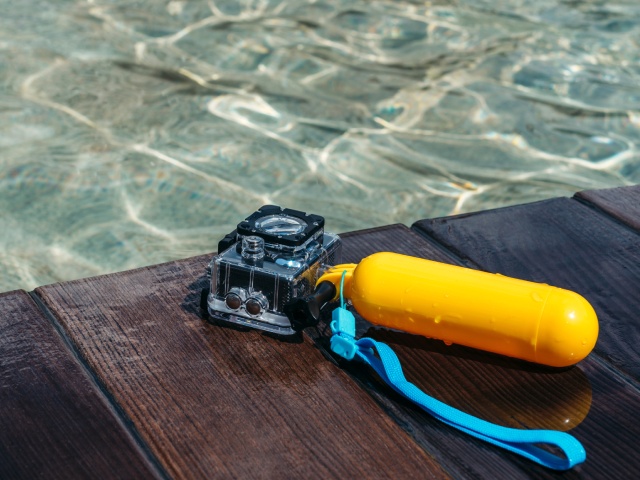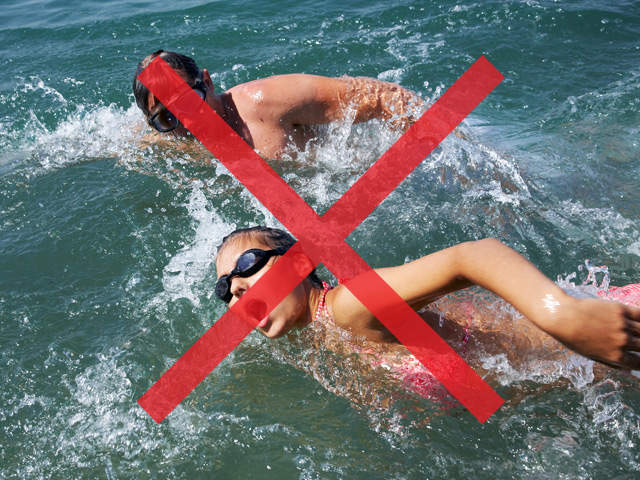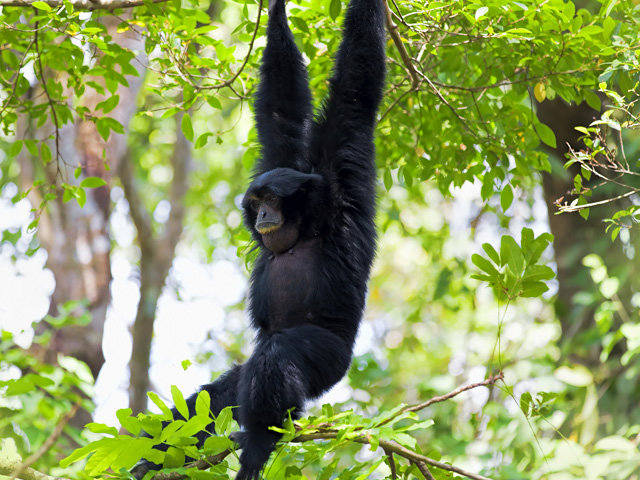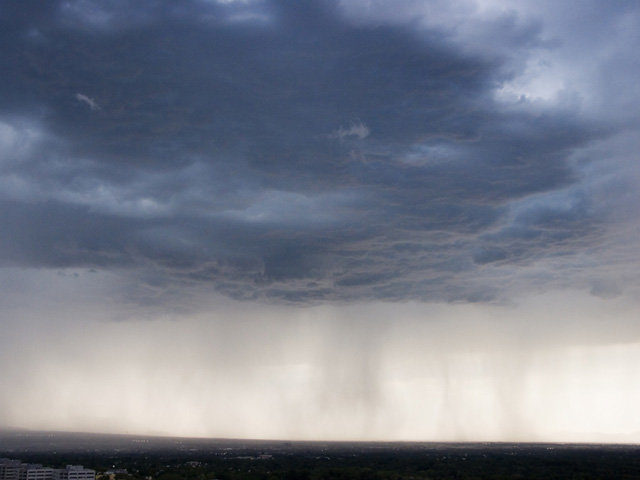Never have I... (B2)
Inversion (441)
Inverze – obrácení slovosledu podmětu a slovesa
Na Landigo se dnes podíváme na tzv. inverzi v oznamovacích větách, kdy je sloveso před podmětem.
Never have I tried venison. How does it taste?
| Klasická oznamovací věta: |
I have never tried it.
|
| Oznamovací věta s inverzí: |
Never have I tried it.
|


V klasické oznamovací větě je nejdříve podmět a poté sloveso. V tázací větě je obvykle obrácený slovosled (= inverze) – nejdříve sloveso a poté podmět:
| Oznamovací věta | Tázací věta – inverze |
|---|---|
|
He has never tried it.
|
Has he ever tried it?
|
|
Tom is here.
|
Is Tom here?
|
Existují také oznamovací věty s inverzí. Inverzi např. používáme, když je na začátku věty záporný výraz NEVER, NOT, BARELY... nebo HERE/THERE:
| Oznamovací věta – inverze |
|---|
|
Never has he tried it.
|
|
Here is Tom.
|
Barely could we finish the pizza. It was much more filling than we had expected.
|
We could barely finish it.
|
|
Barely could we finish it.
|


V oznamovacích větách rozlišujeme částečnou a plnou inverzi:
- V částečné inverzi je před podmětem POMOCNÉ/MODÁLNÍ sloveso (= klasický tázací slovosled).
- V plné inverzi je před podmětem CELÉ sloveso.
| Částečná inverze | Plná inverze |
|---|---|
|
Hardly ever does the bus come late.
|
Here comes the bus.
|
Poznámka k použití: Inverze v oznamovacích větách patří především do formálnější angličtiny a do literárního stylu.
Never have I, only once has he...
Částečnou inverzi (= pomocné/modální sloveso před podmětem) používáme v těchto případech:
- Záporné slovíčko na začátku věty:
Never has he seen the movie.
- ONLY na začátku věty:
Only once has he seen the movie.
- SO a SUCH na začátku věty:
So tired was he, that he didn't finish the movie.
- Porovnávání s AS/THAN:
The cinema was impressive, as was the movie.
- Krátké věty začínající na SO/NEITHER/NOR:
I liked the movie and so did he.
- V kondicionálech:
Should you go to the cinema, I will join you. (= If you go...)
Záporné slovíčko NOT, NEVER, LITTLE, RARELY, HARDLY, NOWHERE... na začátku věty:
|
Never will I talk to you again.
|
|
Little did I know he would never talk to me again.
|
|
Hardly could I believe it.
|
Více o inverzi s NOT, NEVER, LITTLE... v lekci: Zápor a záporné výrazy
Not until much later did we realise we had left our camera by the pool.
|
We didn't realise that until much later.
|
|
Not until much later did we realise that.
|


How difficult! Rarely do I understand it.
|
Rarely do I understand it.
|
| Rarely I understand it. |
| Rarely understand I it. |


ONLY na začátku věty:
|
Only once will I repeat this.
|
Jen jednou to budu opakovat. |
|
Only twice did he call me.
|
Jen dvakrát mi zavolal. |
Pokud je ONLY na začátku souvětí, je inverze pouze v hlavní větě:
|
Only if you ask me nicely will I repeat it.
|
Jen když mě slušně požádáte, zopakuji to. |
|
Only if we are members can we enter.
|
Jen pokud jsme členy, můžeme vstoupit. |
Pokud souvětí začíná na NOT ONLY, je inverze pouze v první větě:
|
Not only did she want me to repeat it, but she also asked me to speak louder.
|
Nejenže chtěla, abych to zopakoval, ale také mě požádala, abych mluvil hlasitěji. |
|
Not only do we have to be members, but we also need to pay for admission.
|
Nejenže musíme být členy, ale musíme také platit za vstup. |
Only with a small backpack does Robert usually travel.
|
He travels only with a backpack.
|
|
Only with a backpack does he travel.
|


Only if you train incredibly hard can you be successful.
|
Only if you train hard can you be successful.
|
| Only if do you train hard... |


Not only was it raining all day, but I also had a terrible headache.
| Not only was it raining... |
| Not only it was raining... |


SO a SUCH na začátku souvětí:
|
So happy was Adam that he didn't stop smiling.
|
Tak šťastný byl Adam, že se nepřestal usmívat. |
|
Such a great day was it that he didn't stop smiling.
|
Tak skvělý to byl den, že se nepřestal usmívat. |
So adorable were the kittens that I decided to keep them.
|
The kittens were so adorable that I kept them.
|
|
So adorable were the kittens that I kept them.
|
| So adorable the kittens were... |


Such an entertaining series was it that we finished the whole season in two days.
| Such an entertaining series was it that we... |
| So entertaining was it that we... |


Při porovnávání s AS a THAN můžeme použít buď klasický slovosled, který je běžnější, nebo inverzi:
|
The dinner was great, as the company was.
|
Večeře byla skvělá, stejně jako společnost. |
|
The dinner was great, as was the company.
|
|
|
You have helped more than Hugh has.
|
Pomohl jsi víc než Hugh. |
|
You have helped more than has Hugh.
|
I reached the top of the mountain an hour earlier than did the others.
|
I reached it earlier than did the others.
|
|
I reached it earlier than the others did.
|


Krátké věty začínající na SO/NEITHER/NOR vyjadřují, že se něco také děje nebo neděje:
|
Ann is late, and so is Peter.
|
Ann má zpoždění a Peter také. |
|
Ann isn't here, neither is Peter.
|
Ann tu není a Peter také ne. |
Více o tomto typu vět v lekci: So am I, neither am I...
We haven't been swimming yet this week and neither has Erica.
| Také ne: |
We haven't been swimming yet and neither has she.
|
| Také ano: |
We've already been swimming and so has she.
|


Inverzi použijeme v kondicionálech bez spojky IF (velmi formální):
|
Should you ask him (= If you ask him), he will lend you his bike.
|
Jestliže se ho zeptáš, půjčí ti kolo. |
|
Were you to ask him (= If you asked him), he would lend you his bike.
|
Kdyby ses ho zeptal, půjčil by ti kolo. |
|
Had you asked him (= If you had asked him), he would have lent you his bike.
|
Kdyby ses ho byl zeptal, byl by ti půjčil kolo. |
Více o této inverzi v lekci: Vypouštění IF v kondicionálech
Should you travel by train, it might be cheaper.
| Běžné: |
If you travel by train, it might be cheaper.
|
| Velmi formální: |
Should you travel by train, it might be cheaper.
|


Here comes the bus, there is the bride...
Plnou inverzi (= celé sloveso před podmětem) používáme v těchto případech:
- HERE/THERE na začátku věty:
Here comes the bride.There is the bride.
- Místo na začátku věty:
On the hill stood the bride.Under the boat swam the fish.
- IN/OFF/UP/DOWN... na začátku věty + sloveso pohybu WALK/RUN/COME...:
Down walks the bride.Out flies a bird.
Outside waited the young man patiently.
|
The man waited outside.
|
|
Outside waited the man.
|


I looked up and there was a giant monkey, jumping from one tree to another.
|
There was a monkey.
|
| There a monkey was. |


Next to the bed lay their loyal dog.
| Místo na začátku: |
|
Next to the bed lay their dog.
|
|
Under the bed hid a cat.
|
|
In the bed slept a couple.
|


Look at the sky. Down will come the heavy rain.
|
Down will come the rain.
|
| Down will the rain come. |
| Down the rain will come. |


Plnou inverzi můžeme také někdy použít místo klasického slovosledu za přímou řečí:
|
"I feel nervous," the bride said.
|
"I feel nervous," said the bride.
|
|
"How do I look?" the bride asked.
|
"How do I look?" asked the bride.
|
"I'm so happy to be home. I never want to leave you for that long again," said Frank.
|
"I never want to leave you," said Frank.
|
|
"I never want to leave you," Frank said.
|


Pozor, pokud je podmětem osobní zájmeno (she, he, we...), používáme klasický oznamovací slovosled. Porovnejte:
|
On the hill stood the bride.
|
On the hill she stood.
|
|
Down walks the bride.
|
Down she walks.
|
|
Here comes the bride.
|
Here she comes.
|
|
There is the bride.
|
There she is.
|
|
"I feel nervous," said the bride.
|
"I feel nervous," she said.
|
Here it is. Enjoy!
|
Here it is.
|
|
Here is the dessert.
|
| Here is it. |
| Here the dessert is. |


"Have you seen Oliver?" he asked.
|
"Have you seen Oliver?" asked he he asked.
|
|
"Have you seen Oliver?" Nick asked.
|
|
"Have you seen Oliver?" asked Nick.
|


Inverze (inversion) – nejdůležitější body:
| Částečná inverze |
|---|
|
Never has he seen the movie.
|
|
Only once has he seen the movie.
|
|
So tired was he, that he didn't finish the movie.
|
|
The cinema was impressive, as was the movie.
|
|
I liked the movie and so did he.
|
|
Should you go to the cinema, I will join you. (= If you go...)
|
| Plná inverze |
|---|
|
Here comes the bride.
|
|
On the hill stood the bride.
|
|
Down walks the bride.
|
|
"I feel nervous," said the bride.
|
